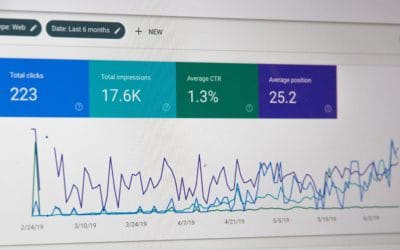In order to grow your organization, you need to understand your customers, and data is invaluable to that understanding. Marketing is all about connecting to your customers. Finding where your customer base is, discovering what they’re interested in, and learning about what’s important to them are all key components to a successful marketing campaign. There are many different types of data that businesses can use to glean insight into their customers. Demographic data, surveys, historical data, customer feedback, and case studies are just some of the tools that can be used to gather information.
What’s Important And What Isn’t
What kind of data is most important greatly depends on what kind of business you have. For example, a B2B telecommunications company would have use of data regarding telephony changes during COVID-19, but wouldn’t have a need for data regarding consumer use of cell phones. Similarly, a small coffee shop would be interested in whether local customers prefer fair trade organic coffee, but wouldn’t be interested in changes in the metal fabrication industry. While it seems obvious given these extreme examples, the first step to data collection in marketing is discovering what kind of data is important to your business, and what isn’t.
How To Find Data
The first place to gather data is from your own business. Past and current customers & trends are a font of information. Asking customers to participate in a questionnaire or short survey can help gather direct information regarding your company. Looking over your business records can help shine a light on recurring trends that are successful or could be improved. Creating a marketing database with this information can help preserve it in one place for future use. One of the easiest ways to do that is via a customer relationship management tool, also called a CRM. One of the most popular free CRMs is HubSpot. (Lisa’s Note- this should be our HubSpot affiliate link but I’m not sure what that is) A CRM tool will aggregate collected customer data into a simple database for easy, filterable access.
Another place to gather reliable data is from industry-specific organizations. For example, The American Marketing Association releases periodic surveys that are useful for marketing firms, The National Restaurant Association provides informational reports for foodservice industries, and The National Association of Realtors keeps a database of research for realtors. Broader statistical information is also available through various government databases such as the US Census Bureau and local government organizations.
Finally, data can be purchased. Often referred to as secondary data, this is data purchased from brokers who collect information from various sources. These can include things such as mailing & email lists, demographic information, and registered voter lists to name a few. Sometimes, purchasing secondary data can be the quickest way to obtain a lot of information, but it’s important to keep in mind that you can often find this same information yourself for free.
There are many other places where data can be gathered, as well. Networking events, trade shows, local organizations, and libraries are just a few of the other resources available for collecting information. Once you decide what kind of data would be useful to your company and goals, you can begin to narrow down where to go to obtain it.
What Can You Do With Data
Data is the key to understanding the industry you’re in. There are many, many things that can be accomplished using the data you collect. It can help you map changes, plan for the future, and see what was successful in the past. It can assist in creating marketing campaigns, help launch new products & services, and obtain a better understanding of your industry in the economy. It allows you to personalize your target marketing for current & past customers, and create enticing invitations for new customers. Data allows insight into what your customers value most so that you can tailor your marketing plan accordingly.




